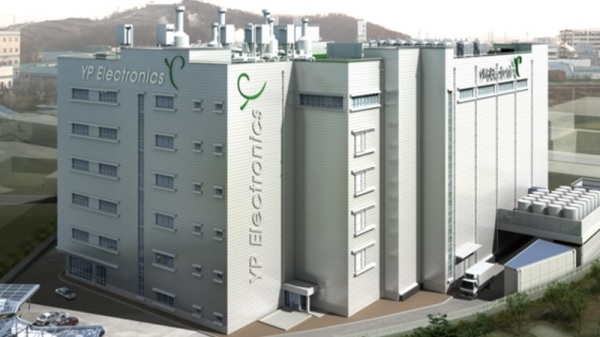Samsung Electro-Mechanics' exit also leaves opening

Young Poong Group’s earnings this year will hinge on what components Apple decided to use on its next iPhone.
Cupertino will likely decide within this month on what flexible printed circuit board (PCB) it will use for its organic light emitting diode (OLED) panels in its next iPhone that will launch later this year.
FPCB is used to connect the OLED panel with the main board in smartphones.
Apple has already decided to use rigid flexible PCB (RFPCB) for the top two models on the new iPhone series, people familiar with matter said.
It is mulling over whether to do the same for the bottom two models or used multiplex FPCB instead. RFPCB, as it names suggest, has both rigid and flexible characteristics that allows for easier product design and faster electric signal transfers. It is a higher tier product than multiplex.
Driver IC and other component supply is expected to be tight this year, so Apple will likely decide the specifications of its product considering this as well as the related yield rate of products.
For the iPhone 12 series, the company used RFPCB for 5.4-inch iPhone 12 Mini and 6.7-inch iPhone 12 Pro Max. It used multiplex for 6.1-inch iPhone 12 and iPhone 12 Pro.
YP Electronics, part of Young Poong Group, supplied its RFPCB for the 2019 iPhone series through LG Display. But the company failed to supply RFPCB for the iPhone 12 series last year. LG Display’s OLED supply to Apple used multiplex. Japan’s Fujikura supplied the multiplex boards for that deal.
Samsung Electro-Mechanics and BH supplied their RFPCB through Samsung Display for the iPhone 12 series.
However, Samsung Electro-Mechanics has exited the RFPCB business, which will raise hopes in Young Poong to take over that volume. The company may win orders from Samsung Display, a supplied of OLED panels to Apple.
Another Young Poong Group affiliate, Interflex, is also eyeing to supply RFPCB. The company had supplied RFPCB for iPhone X’ touch screen panel back in 2017. But defects were found in its RFPCB, and it has been excluded from Apple’s supply chain since then. It may also win orders from Samsung Display.
YP Electronics is already supplying FPCB for panels used in Apple’s iPads.
Meanwhile, Samsung Electro-Mechanics will likely exit its RFPCB business within 2021. Boards supplied for iPhone 12 will likely be its last. The business is estimated to have posted 400 billion won in sales but 50 billion won in operating loss last year.

